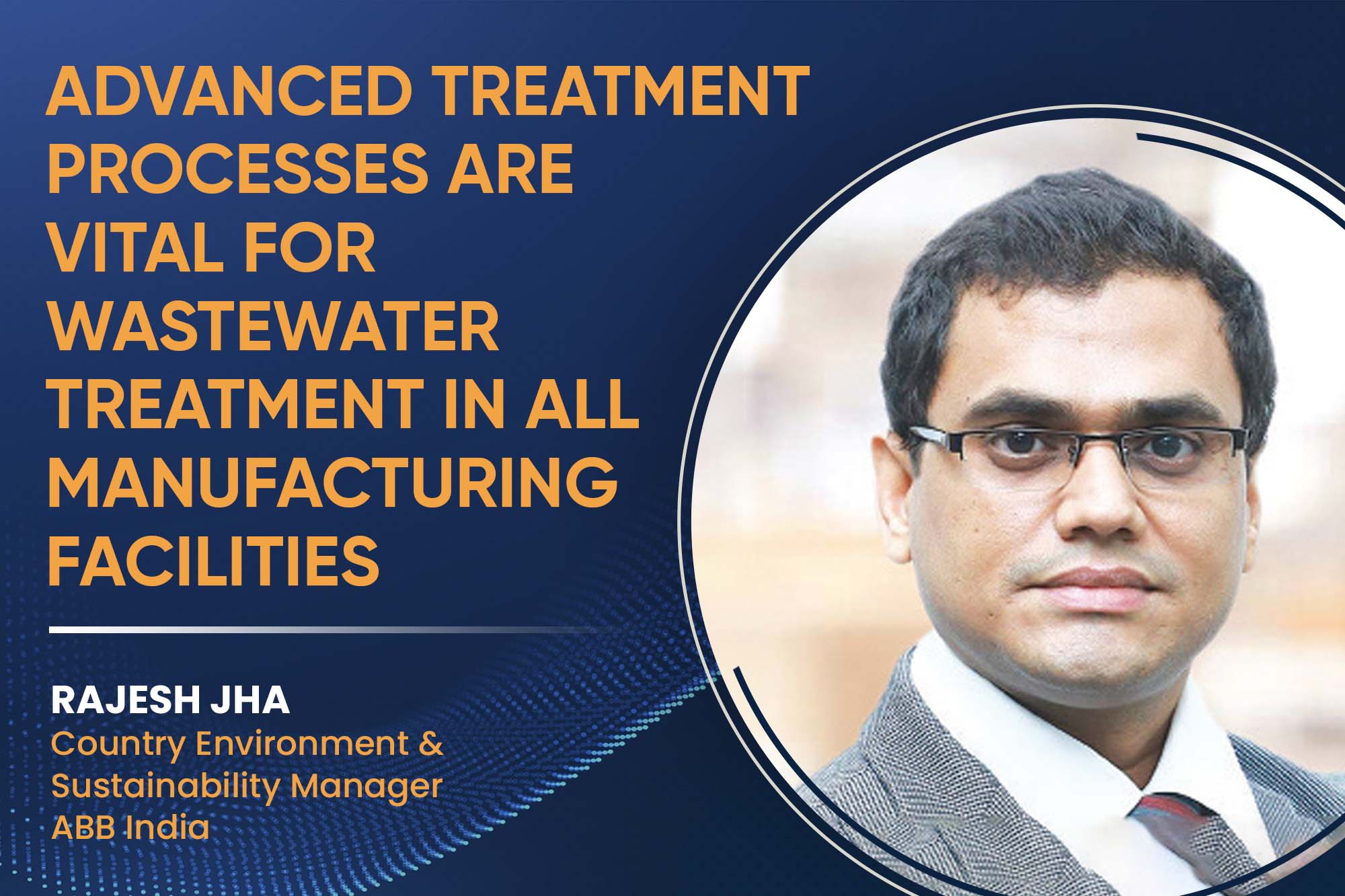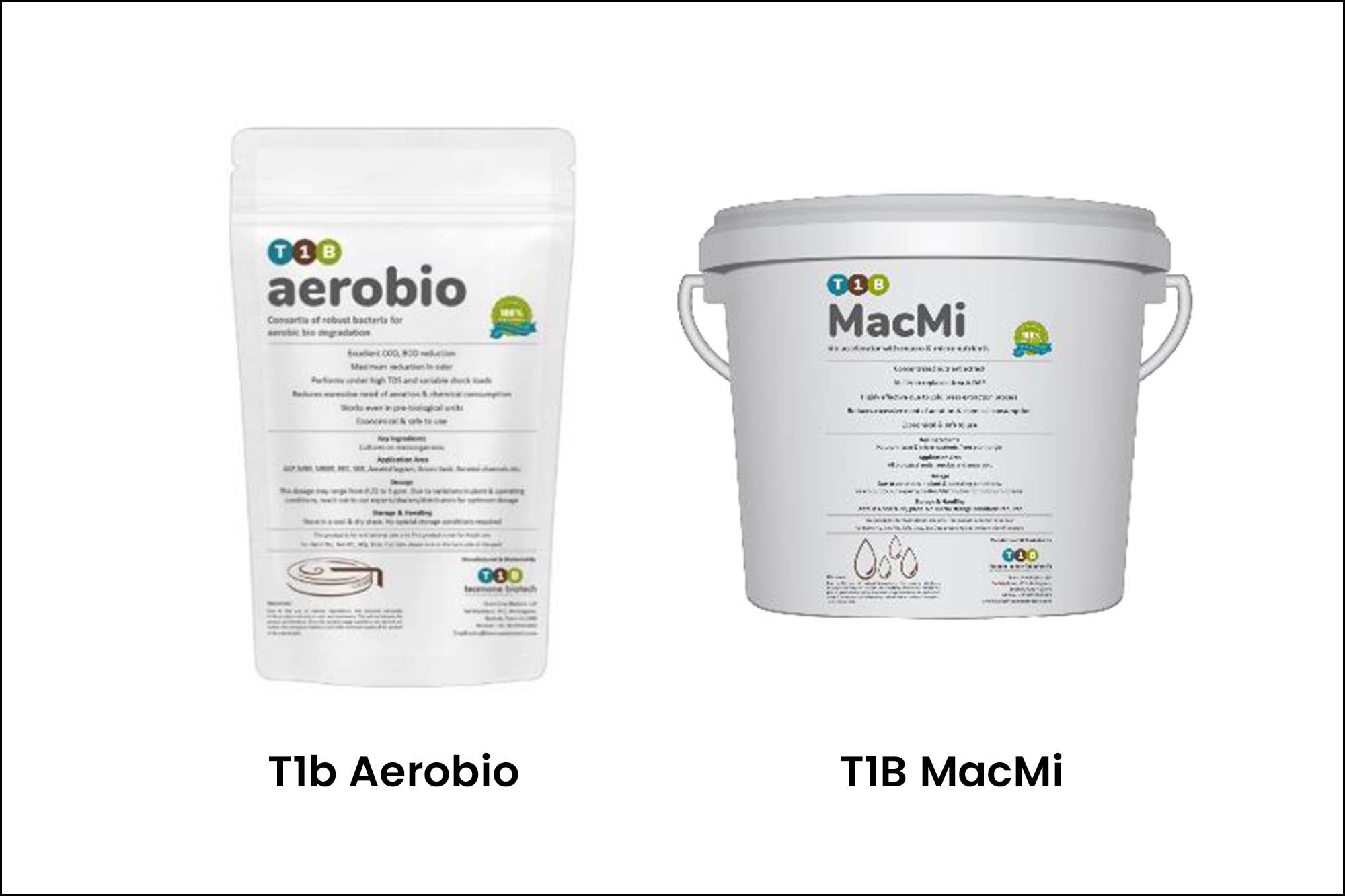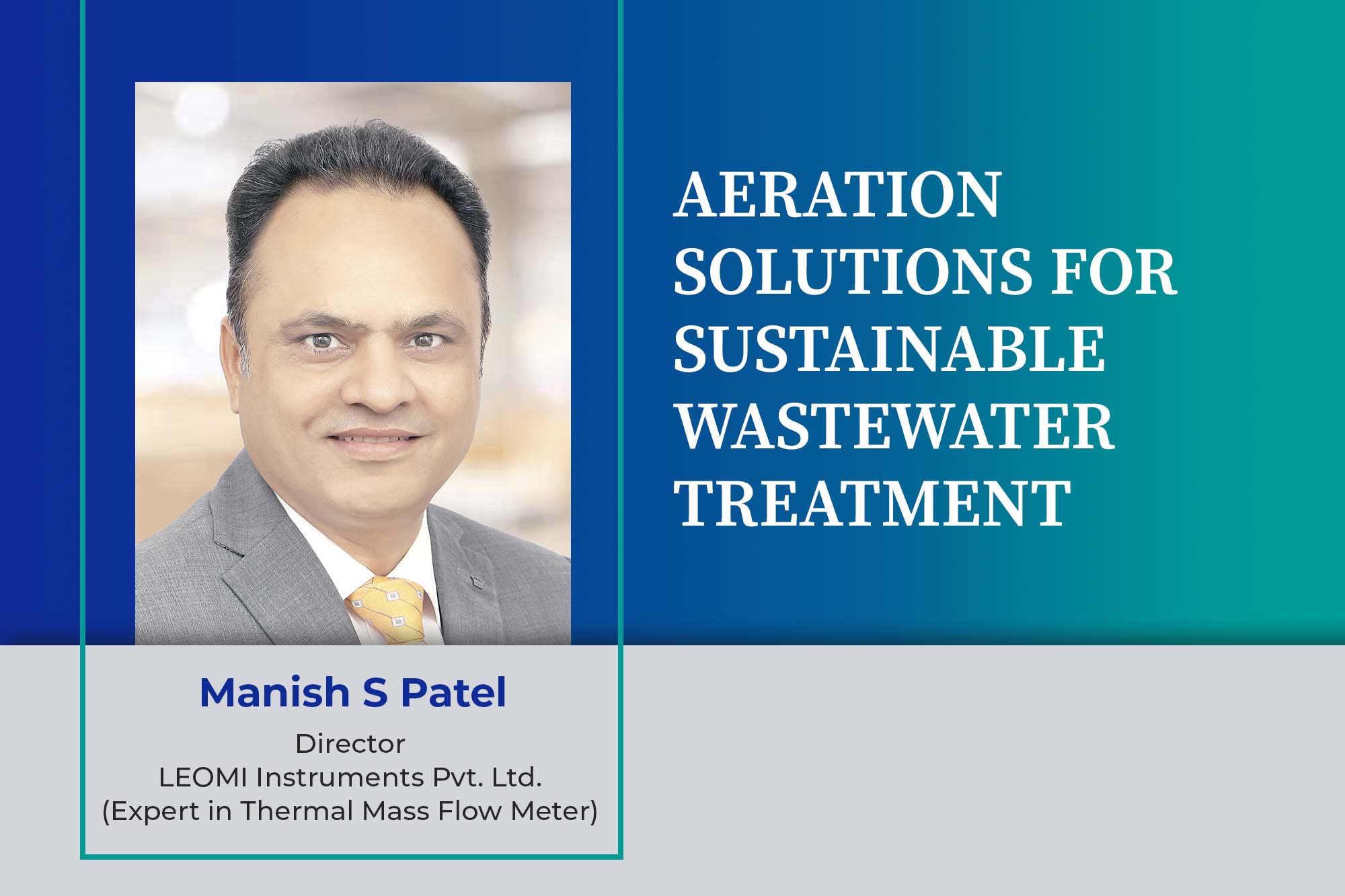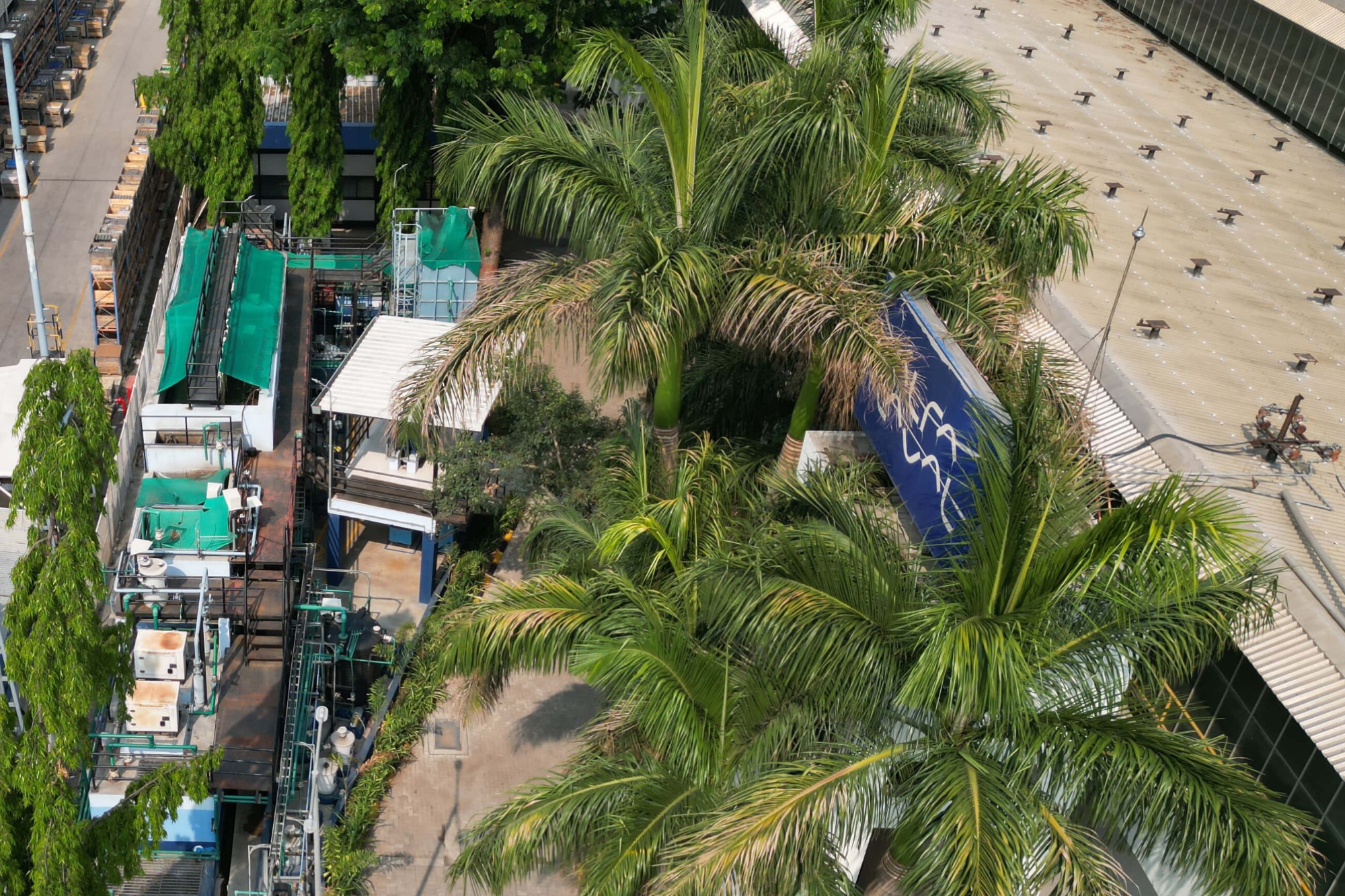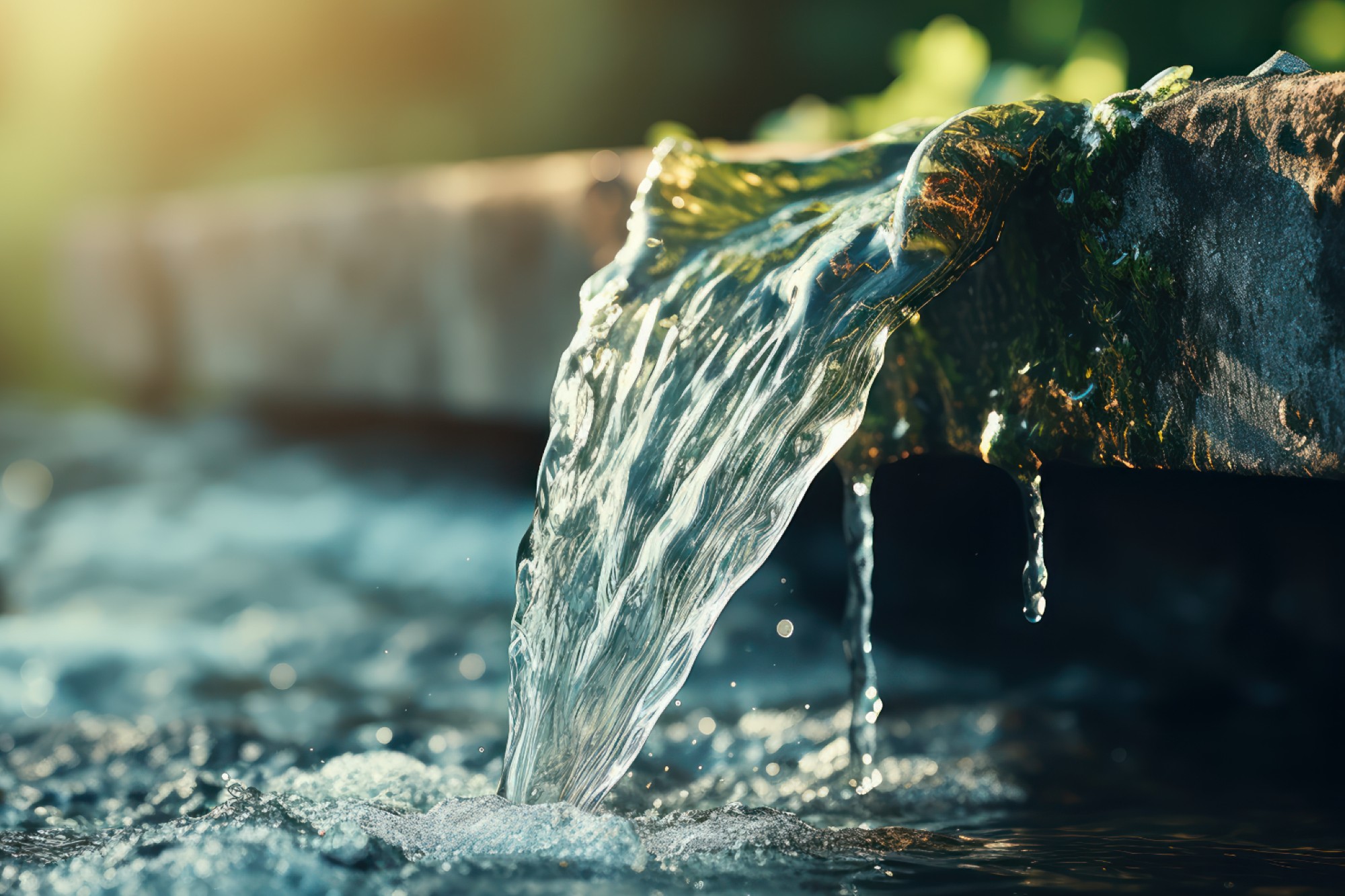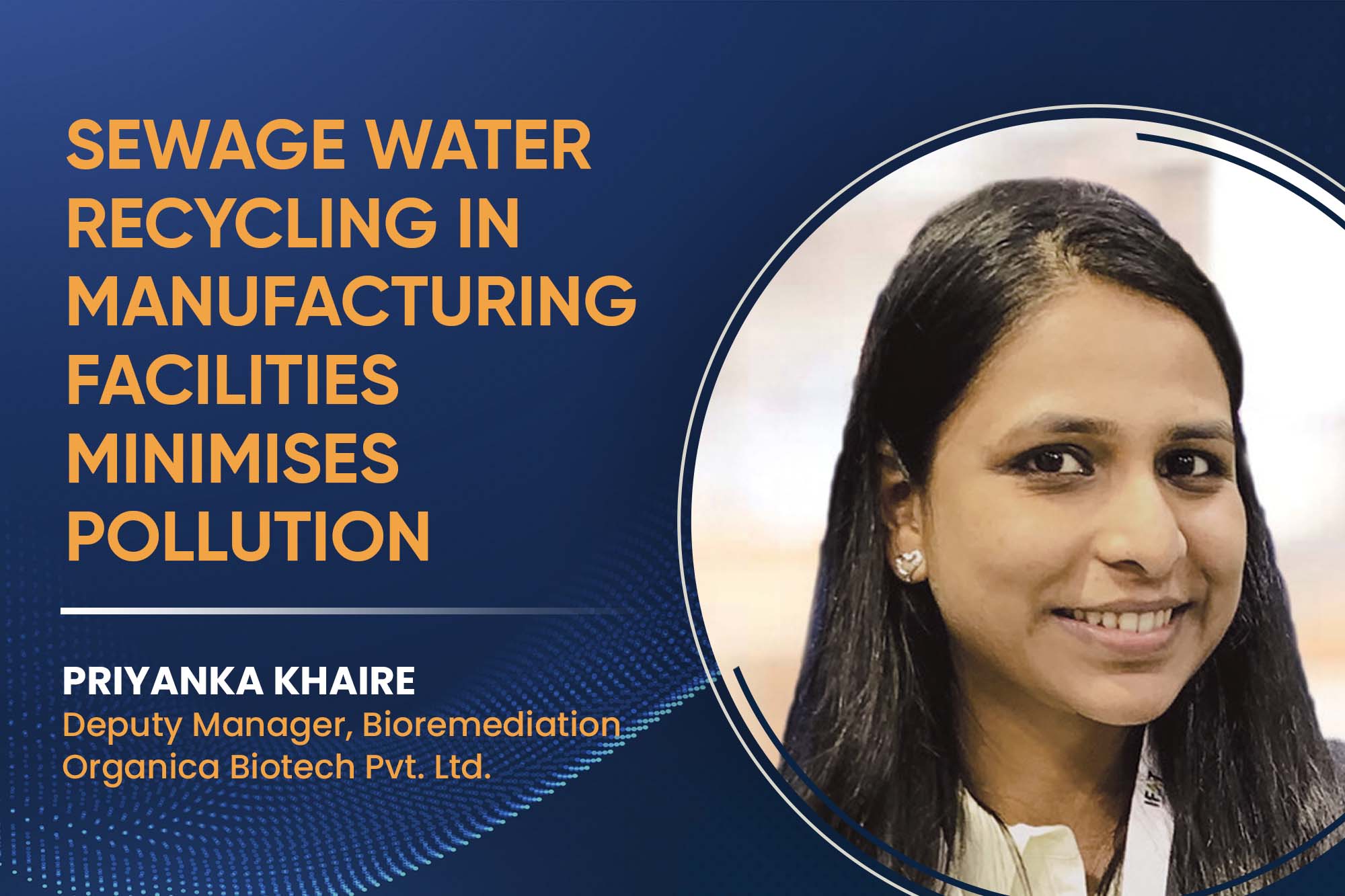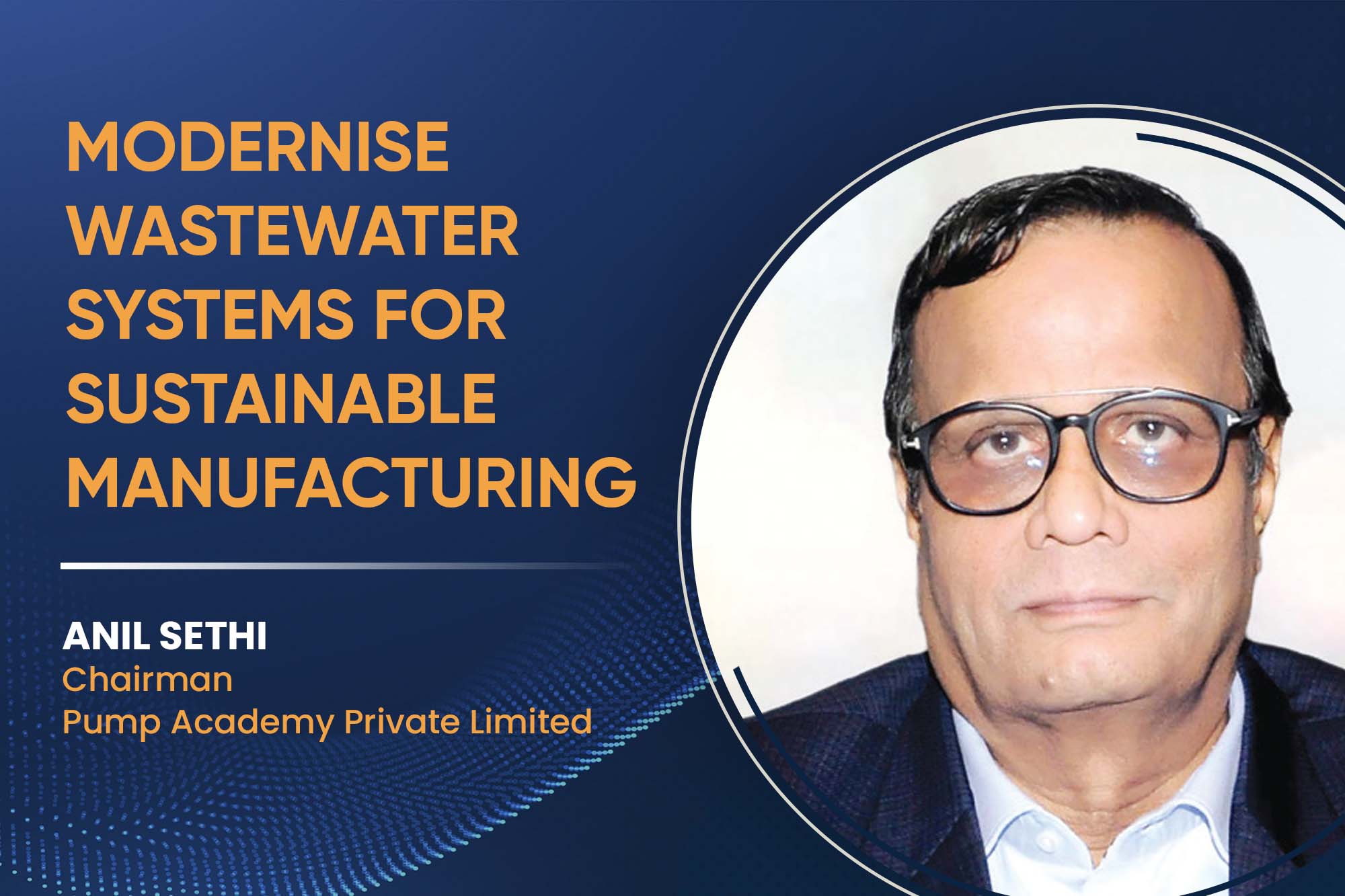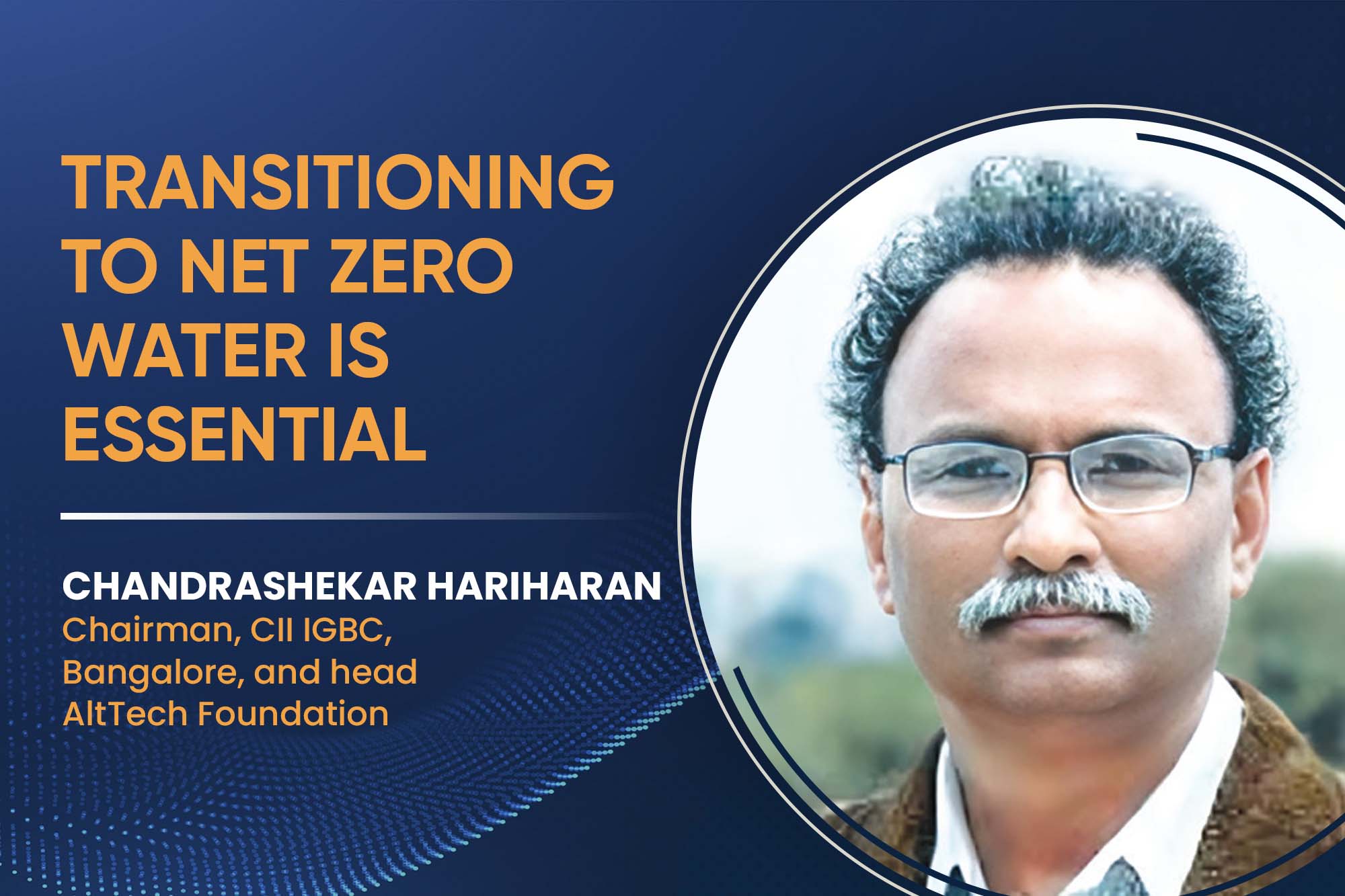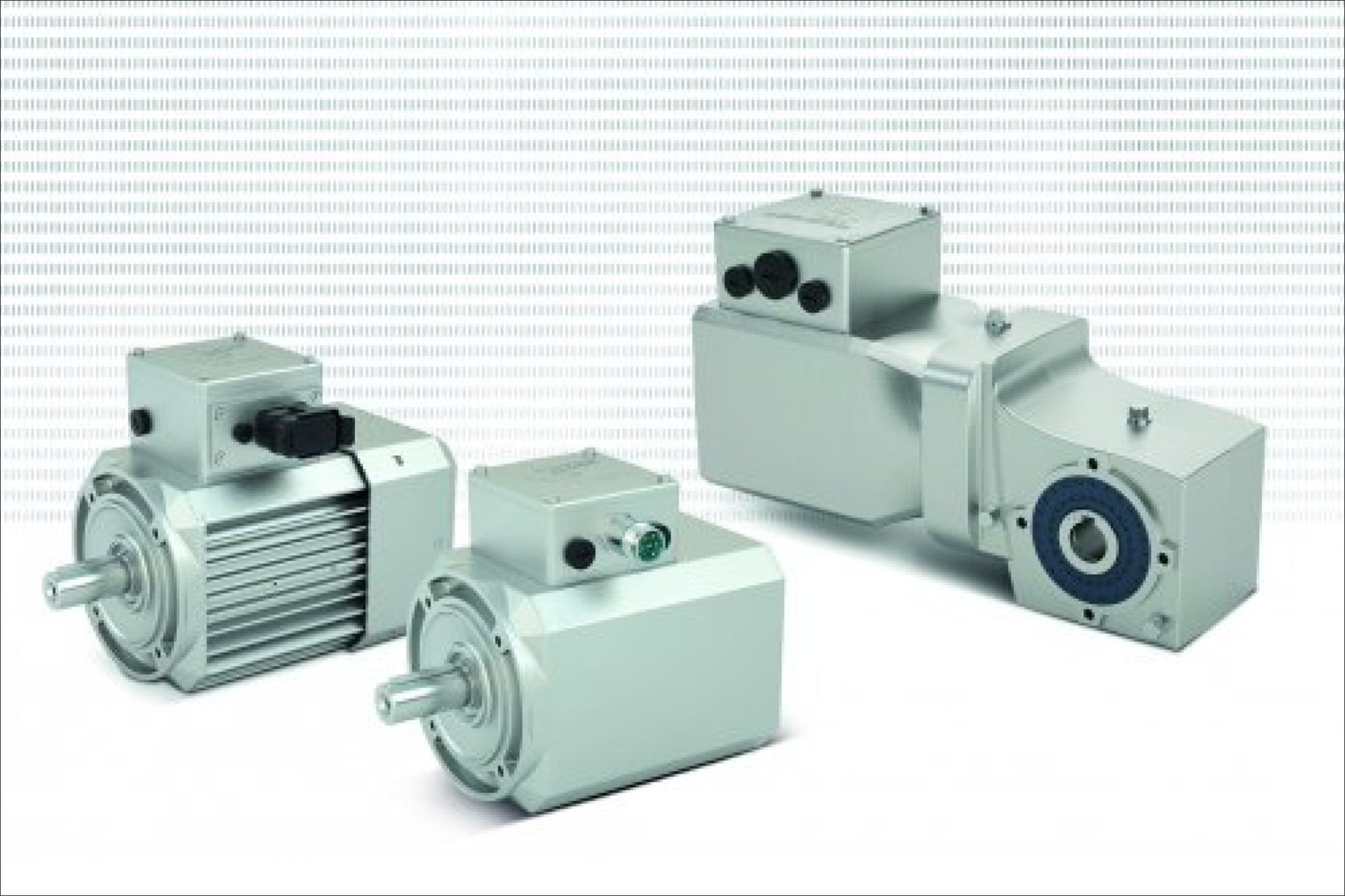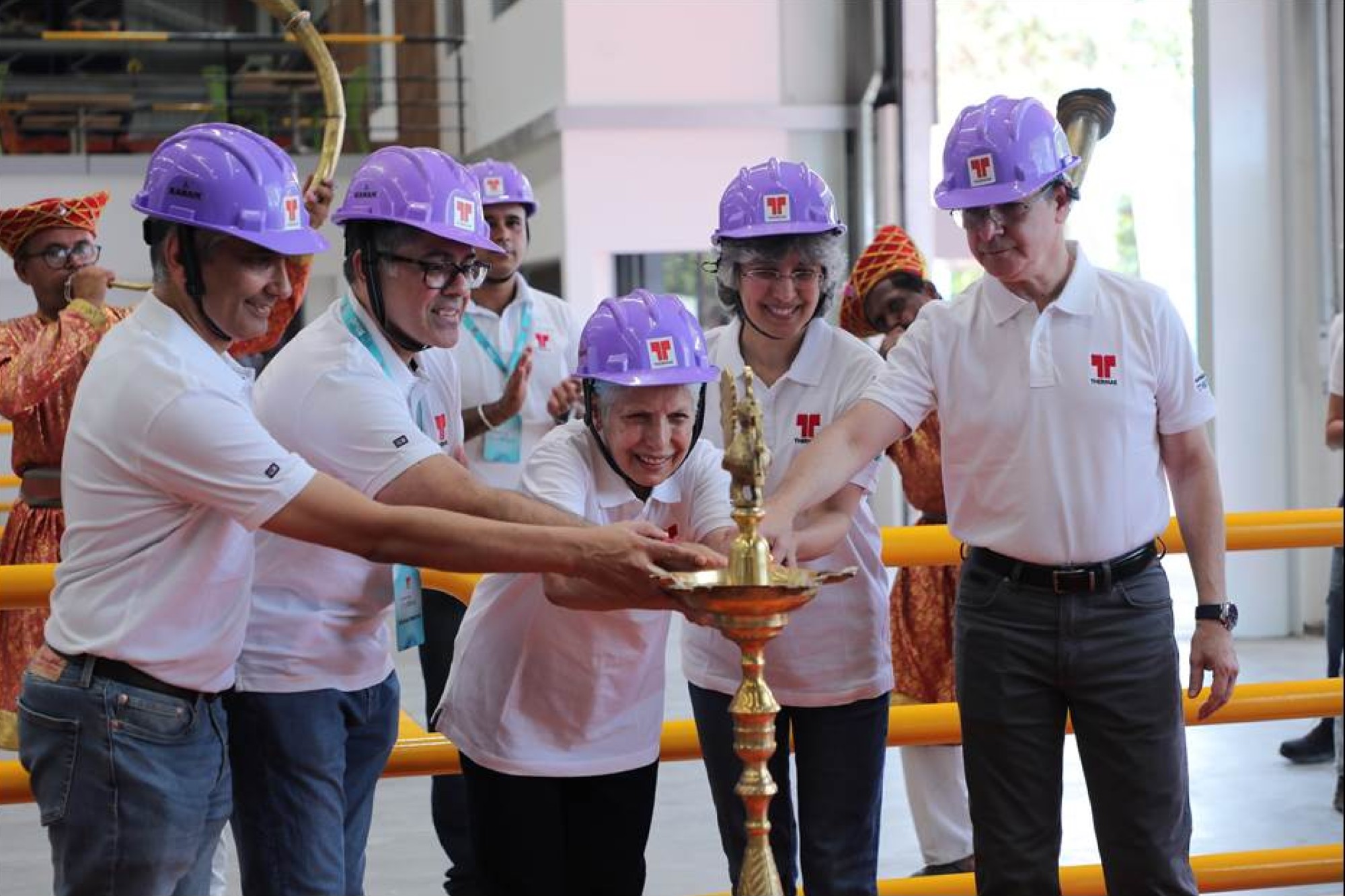Advanced treatment processes are vital for wastewater treatment in all manufacturing facilities
By OEM Update Editorial April 30, 2024 7:37 pm IST
According to Rajesh Jha, Country Environment & Sustainability Manager, ABB India, wastewater treatment in manufacturing facilities is essential for optimising wastewater management within manufacturing facilities and adopting ultra-filtration systems. It elevates the quality of treated wastewater, ensures compliance, and enables cost-effective reuse strategies and sustainability goals.
How have the ABB initiatives contributed to its manufacturing facilities’ sustainability and operational efficiency?
Effective water management, encompassing wastewater treatment, is essential for achieving sustainability in manufacturing facilities. This entails a methodological approach emphasising water conservation culture, improving monitoring systems, optimising operations, and upgrading technologies for efficient water management.
At ABB, we are working towards efficient water management to achieve ‘water positivity’ across our owned factories. We have implemented a unique 6R approach, which includes initiatives such as rainwater use and recharge, reduction in the use of freshwater, water recycling, and real-time monitoring of water consumption, recharge, and saving. Our initiatives are in line with standards provided by the Green Rating for Integrated Habitat Assessment (GRIHA) Council, The Energy and Resources Institute (TERI), and the Indian Green Building Council (IGBC).
We implement low-flow water fixtures, sensor-equipped taps, automated water control systems, limit turf usage in landscaping, and install efficient irrigation systems to reduce freshwater consumption. Following the National Water Mission’s ‘Catch the Rain’ campaign, we have initiated rainwater harvesting projects, focusing on rooftop collection for domestic use and directing surface runoff for groundwater recharge using cross-wave technology-based recharge systems.
In our manufacturing facilities, there has been clear segregation of wastewater based on contamination levels (process effluent, cooling water, etc.) treated through efficient and advanced wastewater treatment facilities. Besides, we are also working towards cultivating a culture of water conservation by training our employees to adopt water-saving practices and ensure proper operation of water-using equipment.
With our continuous efforts toward efficient water management, we have enhanced our water recyclability by 28 percent, compared to our baseline year of 2019, and 50 percent of our factories are now certified as water-positive by the GRIHA Council, in association with TERI. Thus, with a good blend of various approaches, manufacturing facilities can effectively manage water usage and wastewater treatment, increasing operational efficiency.
What criteria does ABB consider when selecting water treatment technologies to enhance water recyclability across its manufacturing facilities?Various factors are accounted for while choosing the water treatment technologies for our effluent and chemical discharge. These include the cost for installation and maintenance of wastewater treatment technology, requirements from regulatory bodies, treated water reuse purpose, source and contamination level of the wastewater, reliability & flexibility of the treatment technologies, and the existing infrastructural/operational constraints at the facilities.
At ABB, our focus has been on choosing the optimal water treatment technology to achieve the required treated water quality and enhance the reuse/recycling of the treated wastewater. This has contributed to achieving Zero Liquid Discharge (ZLD), enhancing the water recyclability by 28 percent compared to the 2019 baseline year and reducing the amount of water consumed in our manufacturing facilities.
How do your wastewater treatment and industrial hygiene initiatives help achieve zero liquid discharge to ensure environmental sustainability?
Manufacturing facilities need a systematic approach involving policy, technology advancements, and enhanced employee engagement to safeguard the environment and industrial hygiene. At ABB, we achieved zero liquid discharge across our facilities through strategies addressing wastewater contaminants and industrial hygiene risks. Initiatives include efficient wastewater treatment facilities (ETP & STP) to enhance the quality of treated wastewater, regular monitoring for quality compliance, and recycling for irrigation, flushing, and processes. We provide employee training on managing hazardous materials, proper use of protective equipment, and emergency procedures to promote safety and hygiene.
How do advanced treatment processes contribute to enhancing the efficiency of wastewater treatment within manufacturing facilities?
Advanced treatment processes are vital in enhancing the efficiency and effectiveness of wastewater treatment in manufacturing facilities. Advanced wastewater treatment processes, such as ultrafiltration systems installed at ABB’s manufacturing facility, provide improved treated wastewater quality to minimise/ eliminate contaminants and pollutants while meeting regulatory compliances. The advanced treatment processes enabled us to enhance the efficiency of treated wastewater use within a manufacturing facility by enabling closed-loop systems and reducing water consumption through reuse, which led to cost savings in our operations. Thus, the advanced treatment processes are essential to wastewater treatment in any manufacturing facility, supporting enhanced contaminant removal, regulatory compliance, and achieving sustainability goals.
Cookie Consent
We use cookies to personalize your experience. By continuing to visit this website you agree to our Terms & Conditions, Privacy Policy and Cookie Policy.



